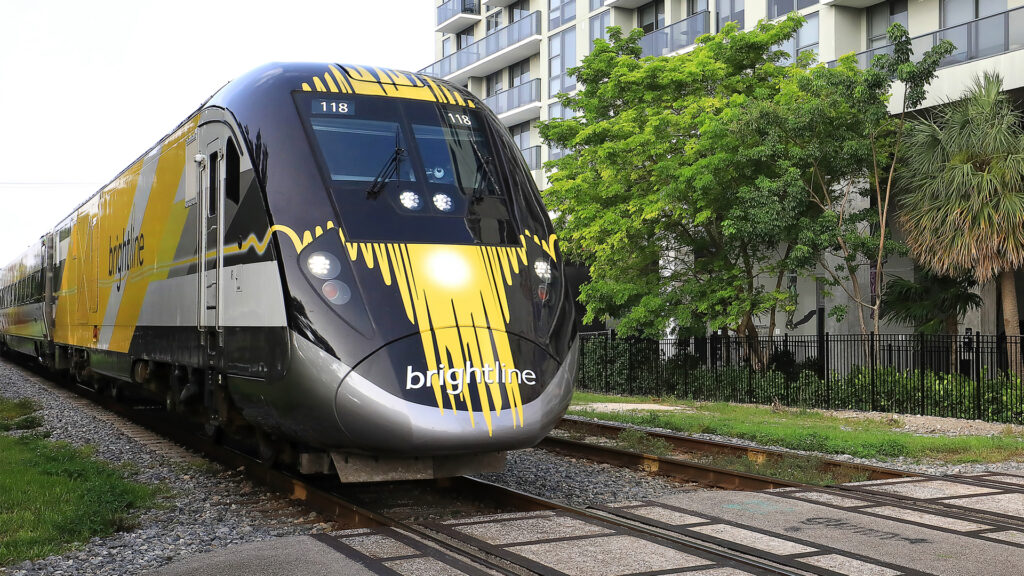By Bob O’Malley, Right Track Public Affairs
The transportation sector is the largest source of greenhouse gas emissions, accounting for 28% of emissions in 2021, according to the U.S. Environmental Protection Agency. A large majority of those emissions — more than 80% — are caused by cars and trucks. Planes are a distant third, while freight and passenger trains produce less than 2%.
Seeing those numbers, one would logically conclude that to reduce emissions, we should reduce our dependency on cars. Yet many environmental advocates are throwing their support behind cars, albeit electric ones. And while electric vehicles, or EVs, do not directly burn fossil fuels, they still produce particulate matter pollution, possibly even more so than internal combustion vehicles.

Furthermore, EVs encourage the use of private automobiles, which induces sprawl, road building and loss of habitat. Roadkill, another environmental consequence of cars, is well-documented in Ben Goldfarb’s new book, “Crossings: How Road Ecology Is Shaping the Future of Our Plant.” Electric and non-electric cars alike kill wildlife. This is an especially heartbreaking reality in Florida, where the endangered Florida panther is threatened by both vehicular strikes and loss of habitat.
Another excellent book, “The High Cost of Free Parking” by Donald Shoup, highlights an often-overlooked environmental problem caused by cars: too much parking. Cars require a massive amount of space just for storage. On average, our private automobiles are parked 95% of the time, resulting in loss of green space and higher costs for housing. In major cities, a large portion of available land is wasted on car storage. For example, according to data compiled by the nonprofit Parking Reform Network, 18% of downtown Miami is dedicated to parking. Tampa is even worse at 29%. And Orlando? A shocking 33%!
Parking lots also cause more heat and flooding, problems that will only increase, especially in coastal areas. In other words, cars are not the solution to climate change. Certainly, encouraging EV adoption reduces carbon emissions and has some benefits. But EVs alone are not a panacea. More focus should be given to promoting other modes of travel and transport.

The environmental benefits of passenger rail are numerous. That a train can move the equivalent of hundreds of cars is an easily understood concept. Even a non-electrified train helps reduce emissions, traffic congestion and, most importantly, sprawl. Fixed route transit and passenger rail encourage transit-oriented development, the antithesis of sprawl. The smart growth enabled by transit investment also helps promote even cleaner modes of transportation, such as walking and biking. By providing viable transportation options, car dependency is reduced, and equity is enhanced.
To help promote investment in transit and passenger rail, environmental advocates need to speak up. In my experience developing passenger rail systems in Florida and other states, that advocacy has been lacking. Granted, some groups such as the Audubon Society and 1000 Friends of Florida have voiced support for rail projects in Florida, but in the past many of their peer organizations sat on the sidelines when those projects needed help. With new plans to expand passenger rail in Florida, specifically Amtrak, Brightline, SunRail and Tri-Rail, those organizations should tout the environmental benefits of rail.
Support for EV adoption is an important endeavor. But given the large portion of carbon pollution caused by the transportation sector, much more focus needs to be given to promoting those transportation modes that cause the least environmental damage. This is an especially important moment in time given the historic levels of funding available for passenger rail expansion, both in Florida and nationwide.
To help make these expansion plans become reality, conservation and environmental advocates need to get on board. The path to saving the planet is on a track, not a road.
Bob O’Malley is president of Right Track Public Affairs.
If you are interested in submitting an opinion piece to The Invading Sea, email Editor Nathan Crabbe at nc*****@*au.edu. Sign up for The Invading Sea newsletter by visiting



